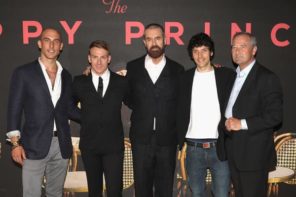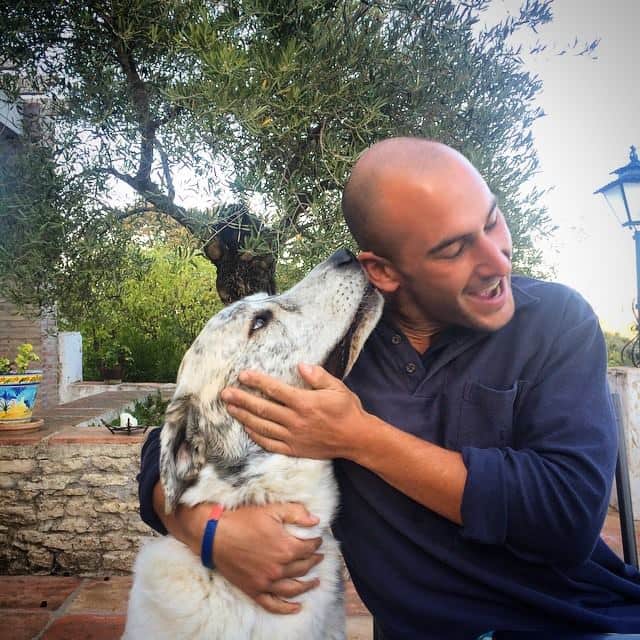
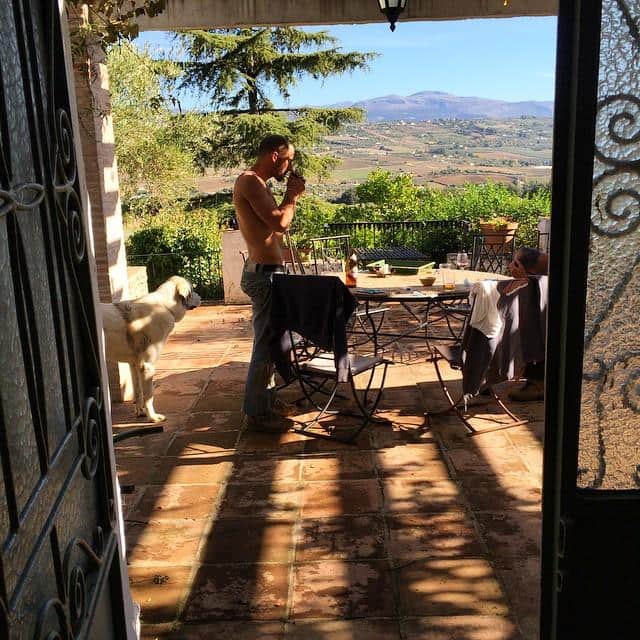
After deciding to leave his acting career behind Tom undergoes gruelling training in preparation to join the Royal Marines. A complete u-turn, but is this really for him?
Three days of physical and mental testing in Lympstone, Devon, was the final entry test before becoming a full time recruit as a Royal Marine Commando. Many miles were ran, few hours of sleep were had, ear bashing from the Corporals and Staff Sergeant were received, and of the 50 or so hopefuls that made the train journey down from all corners of the UK, 20 of us were left. We had passed, and I thoroughly enjoyed it although my legs burned and my left Achilles tendon had swollen to double its original size.
I had to declare it as an injury, which meant suspending my entry until after the summer and being on a monitored program of exercise, so as to be certified as fit to join by a military doctor. I logged my nutrition and physical activity and got a job working in construction for the summer to earn a little money and pass the time in this unexpected three month gap. Recovery was going well and I was feeling stronger. The construction work kept me more or less occupied and out of trouble.
In June I received an email. It was from David Hare, the playwright of The Judas Kiss, and it read something along the lines (not a direct quote) of 'Hi Tom, we are performing the play in Toronto and New York next year, and I hear you've had a change of career path, but if you change your mind the role is yours.
David.' I had rejected the offer some months earlier, but now after the selection process had been and gone I had got to wondering again about this 'career change.' Was this u-turn really for me? I remembered on the final night in selection where we camped outside in Devon under tarpaulin sheets, alternating shifts in taking watch.
I couldn't sleep and I looked up at the stars as I lay underneath my little bit of plastic and thought, 'Can I really do this? Can I kill a person? Can I see another soldier dying next to me?' After all I was about to join the Royal Marines, a fighting force that is very much on the front line of global conflicts. I brushed those questions off quickly at the time, but they came back and with a fuller force occupied more of my headspace. I decided to leave it for a while, a week or so at least, then come back to it. After only a few days I had to re-read David's offer. Broadway was on my bucket list, a life to-do list that I first comprised at the age of 18.
After a gruelling 14 hour day on site I came back and sat at my laptop with the email in front of me once more. I typed an acceptance draft, saved it and had dinner with my parents, where I told them about the offer and the subsequent dilemma. Mum breathed a sigh of hopeful relief. Dad looked concerned. We talked a while, into the evening and then the night.
'I think I'm going to withdraw my application to the Marines,' I said. That was the first time I uttered it out loud, feeling strange yet right. 'Then that's what you should do,' Dad replied. The decision was made. I phoned the recruitment office and put in an official withdrawal, and sent that saved draft. Back to square one then, I thought. Never a dull moment.
I stayed in Essex and continued to work as rehearsals for the transfer to America were to begin in February. I worked relentlessly through the Summer and Autumn months until my travelling compatriot and I booked to go for a month to Andalucía and pick olives in the Spanish mountains. At the time he was working on an idea, and I had an idea of my own; a play demystifying the male working class in rural England, giving a voice of truth to a world often under and misrepresented by the mainstream arts.
I worked with these people on and off for years, and so felt I had an understanding of the trapped nature of their lives. I wanted to present this onstage. We boarded the plane with a couple of backpacks and our laptops and were met by a grizzly yet charismatic middle aged man who had a striking resemblance to aging Hemingway. He was English, formerly worked in finance, left his whole life to set up a bed and breakfast and a working olive grove in Southern Spain. The deal was that we would work the fields five hours a day, five days a week, and in return he would provide food and accommodation.
It worked a treat, at first... We were surrounded by cats, a pig, donkey, chickens and a beautiful Spanish mastiff named Max, who loyally followed us up to the olive grove as we cultivated the ground and handpicked the olives. Our host would collect eggs from the hens every morning for our breakfast, and then cook us a rustic local dish for lunch. In the evening we would sit on the veranda as the sun bled into the Andalucían mountains and tap away on our laptops until it was too dark to see the keyboard. After that, there was some time had in the make shift brewery adjacent to our living quarters, sampling the beer that was being brewed by the host's friend, accompanied by philosophical debates until we couldn't ignore the heaviness of our eyelids and had to retreat to the outhouse to sleep.
I stayed in Essex and continued to work as rehearsals for the transfer to America were to begin in February. I worked relentlessly through the Summer and Autumn months until my travelling compatriot and I booked to go for a month to Andalucía and pick olives in the Spanish mountains. At the time he was working on an idea, and I had an idea of my own; a play demystifying the male working class in rural England, giving a voice of truth to a world often under and misrepresented by the mainstream arts. I worked with these people on and off for years, and so felt I had an understanding of the trapped nature of their lives. I wanted to present this onstage. We boarded the plane with a couple of backpacks and our laptops and were met by a grizzly yet charismatic middle aged man who had a striking resemblance to aging Hemingway. He was English, formerly worked in finance, left his whole life to set up a bed and breakfast and a working olive grove in Southern Spain. The deal was that we would work the fields five hours a day, five days a week, and in return he would provide food and accommodation. It worked a treat, at first... We were surrounded by cats, a pig, donkey, chickens and a beautiful Spanish mastiff named Max, who loyally followed us up to the olive grove as we cultivated the ground and handpicked the olives. Our host would collect eggs from the hens every morning for our breakfast, and then cook us a rustic local dish for lunch. In the evening we would sit on the veranda as the sun bled into the Andalucían mountains and tap away on our laptops until it was too dark to see the keyboard. After that, there was some time had in the make shift brewery adjacent to our living quarters, sampling the beer that was being brewed by the host's friend, accompanied by philosophical debates until we couldn't ignore the heaviness of our eyelids and had to retreat to the outhouse to sleep.
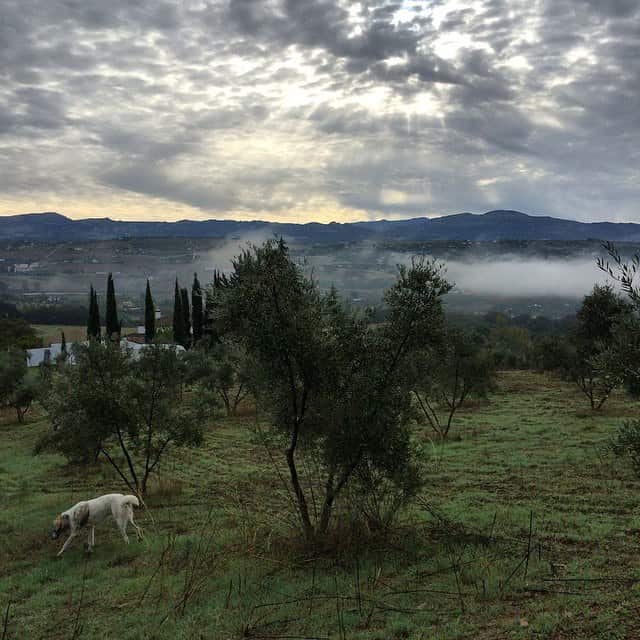
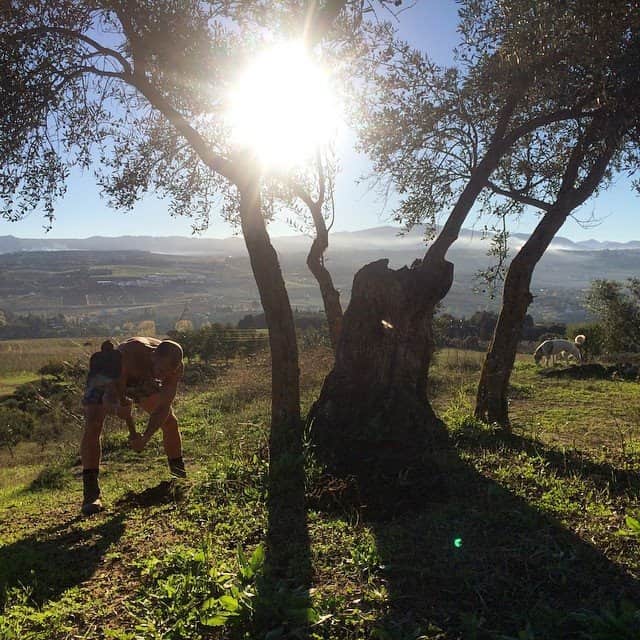
This blissful routine carried on for three weeks and we were really enjoying the combination of hard physical work in the mornings, with resting and writing in the evenings. We picked just over one tonne of olives and with satisfaction loaded them into the van to be taken to press to make olive oil.
All was going so well until one morning an event occurred which won't be written about right now, but let's just say it involved a beheaded chicken, a 'blunt' axe and our work in the fields being compared to the work of slaves. The only option was to leave, and immediately. We stole a crate of beer from the brewery when the host was at the local town nearby for the night, drank it in our outhouse, packed and left a note that stated it was best for us 'to move on' and walked to Ronda (the nearest city) at dawn to get the bus to Malaga for the last week.
We booked a small flat in the centre and continued the attempt to finish our work. By the time we left we had some stories, some words written down, and some memorable experiences; arguably what one would like out of such a trip away. I was back home to finish off the year and ironically got a job plucking Christmas turkey's, which has thankfully been my first and only time in a slaughterhouse.
The rehearsals for The Judas Kiss were arriving imminently, and as 2015 closed I looked forward to getting into the theatre again. The 'hiatus' (Marines, construction work, olive picking) was a year that I value so much even to this day. I guess I was about to be an actor again then.

Tom Colley is a Screen and Method Acting tutor. City Academy run Acting for Screen classes across central London. Find your class below:
- All Screen Acting classes
- Screen Acting - Introduction course
- Screen Acting - Level 1 course
- Screen Acting - Level 2 course
- Screen Acting - Level 3 course
- Screen Acting Intensive Courses
- Professional Showreel Package




